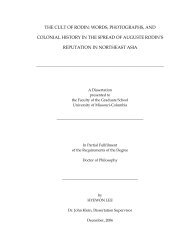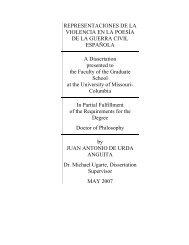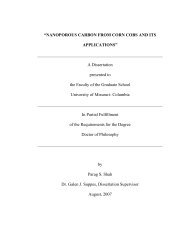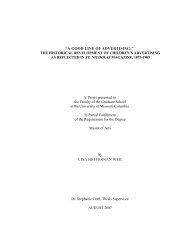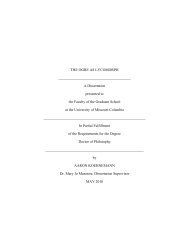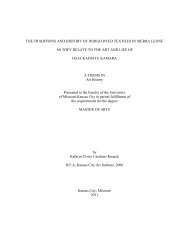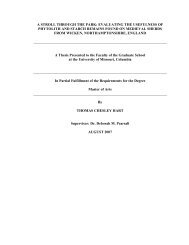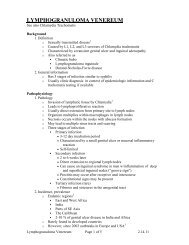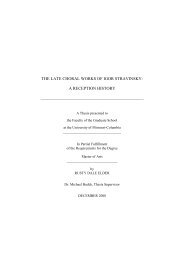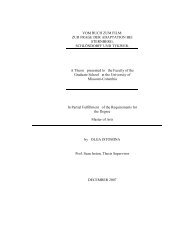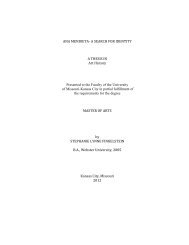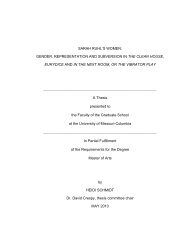Social Construction of Reality - Bad Request
Social Construction of Reality - Bad Request
Social Construction of Reality - Bad Request
You also want an ePaper? Increase the reach of your titles
YUMPU automatically turns print PDFs into web optimized ePapers that Google loves.
CHAPTER THREE<br />
RESEARCH METHODOLOGY<br />
Introduction<br />
The No Child Left Behind Act (NCLB) <strong>of</strong> 2001 requires K-12 organizations to<br />
perform numerous program evaluations, despite the fact few <strong>of</strong> these organizations have<br />
the pr<strong>of</strong>essional capacity to support program evaluations beyond the minimum level<br />
required to achieve federal compliance (Rossi, Lipsey, & Freeman, 2004; Scriven, 1996).<br />
Because the K-12 arena is not populated with pr<strong>of</strong>essional program evaluators,<br />
evaluations typically emphasize outcomes at the expense <strong>of</strong> process assessment while<br />
also prioritizing compliance needs ahead <strong>of</strong> other stakeholder interests (Eddy & Berry,<br />
2007). As early as 2002, the Department <strong>of</strong> Education expressed concerns that<br />
“evaluation studies are not as helpful as they could be to practitioners at the local level,<br />
nor can they answer questions <strong>of</strong> causation” (New Directions, 2004). The selected<br />
Missouri school district, hereafter referred to as The School District, has not yet<br />
determined how to implement program evaluations that are routinely capable <strong>of</strong><br />
maximizing the use <strong>of</strong> stakeholder time, overcoming geographic constraints, and<br />
providing anonymity where necessary while still promoting organizational knowledge<br />
creation.<br />
Research Paradigm and Philosophy<br />
To best understand how processes and meanings evolve from any research, the<br />
reader is well-served to understand the cognitive logic <strong>of</strong> the researcher. Coghlan and<br />
Brannick (2005) emphasize “researchers’ epistemological and ontological perspectives<br />
legitimate their own distinctive way <strong>of</strong> doing research and determine what they consider<br />
45



